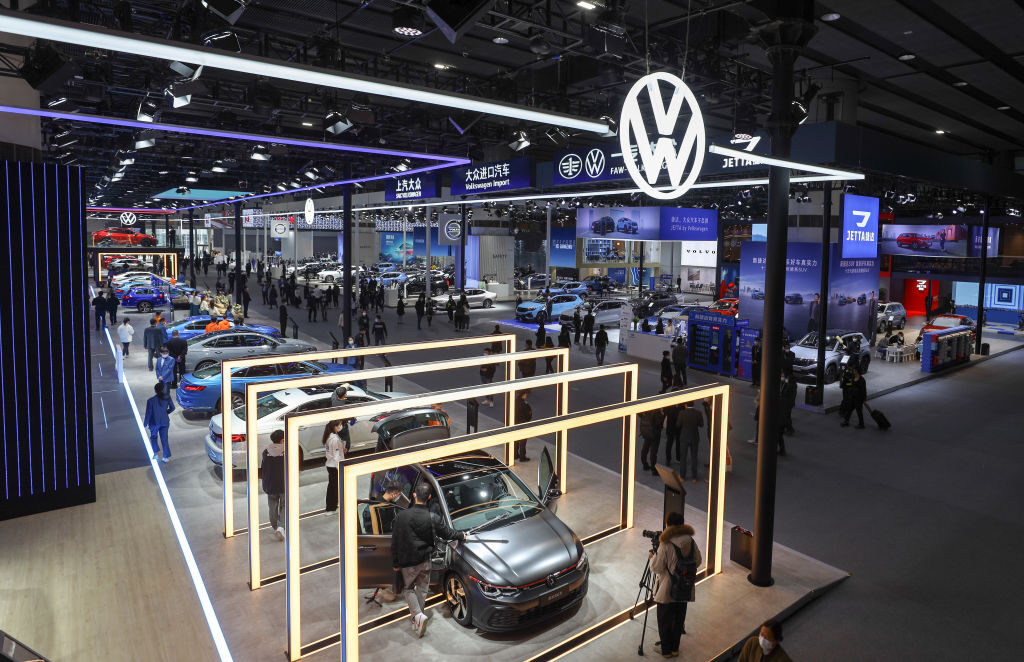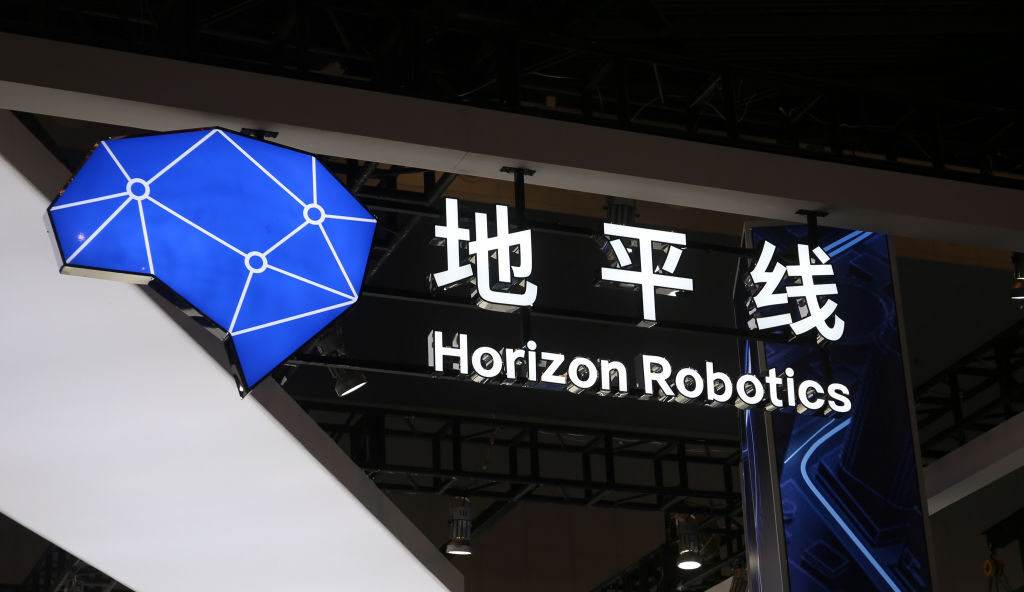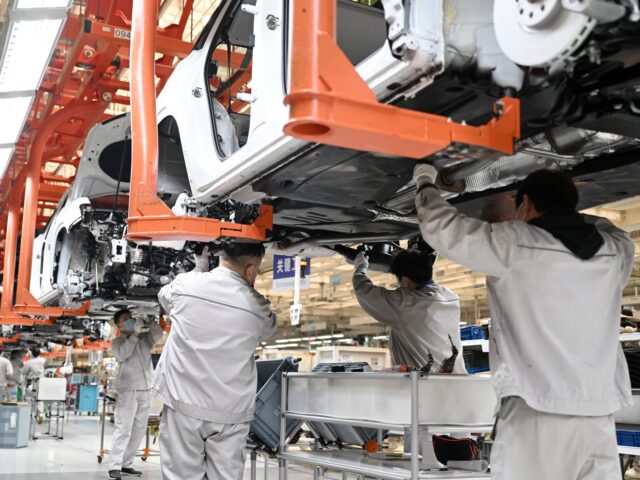A top official in German automaker Volkswagen’s China operation insisted in remarks on Tuesday that a plant in Urumqi, the capital of occupied East Turkistan, did not show any signs of enslaving workers or participating in the Chinese government’s ongoing genocide against the Uyghur people of that region.
Ralf Brandstätter, a member of Volkswagen’s China board, revealed this week that he had visited the Urumqi plant on February 16 and 17 in response to the extensive evidence compiled by the United Nations, Uyghur organizations, and human rights researchers that Chinese dictator Xi Jinping had launched a campaign of genocide against Uyghurs and other Turkic people in East Turkistan.
The Chinese Communist Party – as revealed in eyewitness testimonies, leaked police documents, and other evidence – began building concentration camps in East Turkistan in 2017, ultimately imprisoning as many as 3 million people there. Survivors of the camps have testified to being forced to engage in communist indoctrination, renounce their religion (most of the region’s indigenous population is Muslim), and endured severe abuse, including beatings, torture, rape, and medical testing consistent with live organ harvesting. Many also accused camp directors of forcing them into slavery.
Outside of the camps, China has endeavored to raze mosques, cemeteries, and other sites of historical and cultural note, replacing them with everything from government buildings to toilets. Evidence also indicates that Beijing has enslaved Uyghurs outside of camps, forcing them to work in cotton fields, solar panel manufacturing plants, and other factories. Chinese officials have insisted that the slavery program – which features a trove of online advertisements in which the regime sells Uyghur slaves in batches to factory owners – is actually a government program to aid Uyghurs in transitioning into the modern Chinese economy. Similarly, China refers to its concentration camps as “Vocational Education Training Centers.”

People visit the Volkswagen stand during the 20th Guangzhou International Automobile Exhibition at Canton Fair Complex on December 30, 2022 in Guangzhou, Guangdong Province of China. (Photo by Zou Wei/VCG via Getty Images)
Volkswagen has maintained a facility in Urumqi despite years of evidence of an ongoing genocide in the region. The plant is co-managed by the Chinese company SAIC, China’s largest automaker. The Urumqi plant is used for final quality checks on cars assembled elsewhere and the distribution of these final products. The plant stopped manufacturing cars in 2019.
Brandstätter, the Volkswagen executive, insisted in his remarks this week that he had the ability to speak extensively with workers at the plant from multiple ethnic backgrounds
“Of course we are aware of the critical reports, we take that very seriously,” the finance publication dpa-AFX reported on Tuesday. “But we have no evidence of human rights violations at this plant – that has not changed after my visit.”
“I didn’t find any contradictions,” he asserted. “I have no reason to doubt the information and my impressions. Regardless of that, of course, we continue to look.”
“Our partner has great interest in and is committed to ensuring a positive atmosphere and proper working conditions,” Brandstätter said of SAIC.
The visit itself, and its conclusions, prompted the ire of Uyghur activists around the world, who have spent years bringing awareness to the world of the brutality of China’s genocide of their people. The World Uyghur Congress (WUC), in a statement alongside the Society for Threatened Peoples (GfbV), on Tuesday questioned the authenticity of Brandstätter’s claim to having full and transparent access to workers at the plant. According to the groups, neither China nor Volkswagen has not allowed access to the plant for media in a decade.
“There are serious doubts about the extent to which Mr. Brandstätter was able to get an objective picture of the situation on the ground, especially since the visit was most likely planned and coordinated jointly with the Chinese authorities,” WUC Berlin office chief Haiyuer Kuerban said. “Volkswagen must not become a cover for the Chinese government’s genocide against the Uyghurs and other Turkic peoples.”
Hanno Schedler of the GfbV called for Volkswagen to “finally face the consequences and leave the region.”

Horizon Robotics at the World Artificial Intelligence Conference in Shanghai, China, July 7, 2021. On October 16, 2022, Volkswagen announced it will invest around 2.4 billion euros to jointly establish a new company with Chinese intelligent computing platform provider and AI chip service provider Horizon Robotics, focusing on technology development in the field of autonomous driving. (CFOTO/Future Publishing via Getty Images)
“It must also be transparent about how it investigates reports of forced labour in its supply chains and what consequences it is prepared to draw. Of course, this also concerns the Chinese supplier companies located in and outside Xinjiang/East Turkistan,” Schedler noted.
Volkswagen has already been implicated in the use of Uyghur slaves in plants outside of East Turkistan. The company was among 82 multinational corporations identified in a 2020 report by the Australian Strategic Policy Institute (ASPI) titled “Uyghurs for Sale” that found China shipping Uyghur slaves to factories and plants nationwide.
“The Chinese government has facilitated the mass transfer of Uyghur and other ethnic minority citizens from the far west region of Xinjiang [East Turkistan] to factories across the country,” the report revealed. “Under conditions that strongly suggest forced labour, Uyghurs are working in factories that are in the supply chains of at least 82 well-known global brands in the technology, clothing and automotive sectors, including Apple, BMW, Gap, Huawei, Nike, Samsung, Sony and Volkswagen.”
The report found online advertisements selling Uyghur slaves to factories at low prices and estimated that 80,000 Uyghur slaves were shipped out of East Turkistan to factories elsewhere in China.
Follow Frances Martel on Facebook and Twitter.

COMMENTS
Please let us know if you're having issues with commenting.